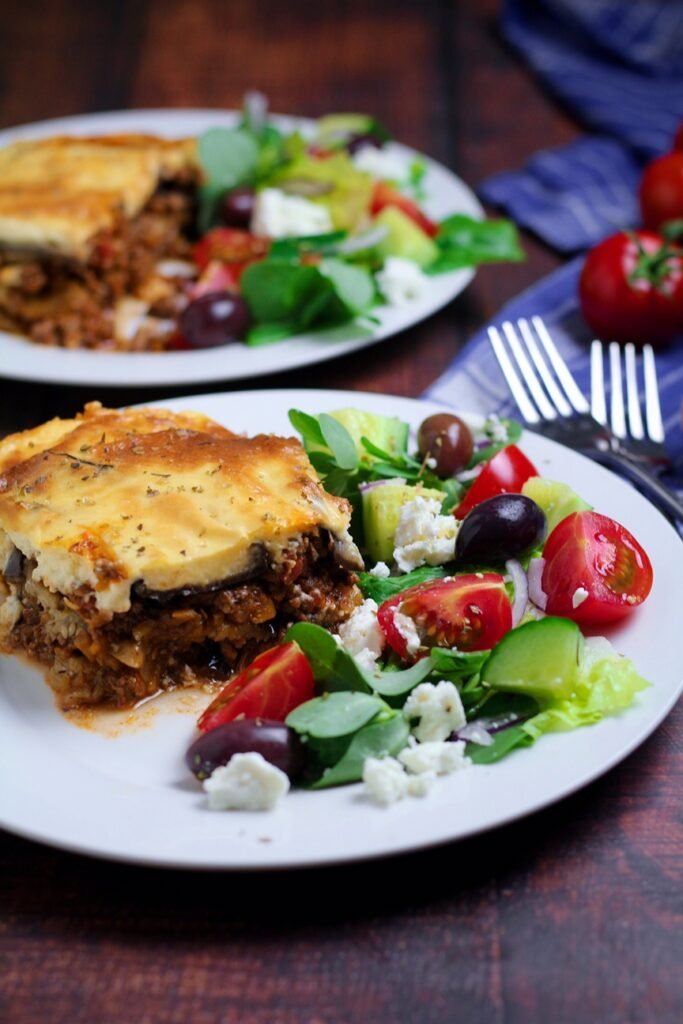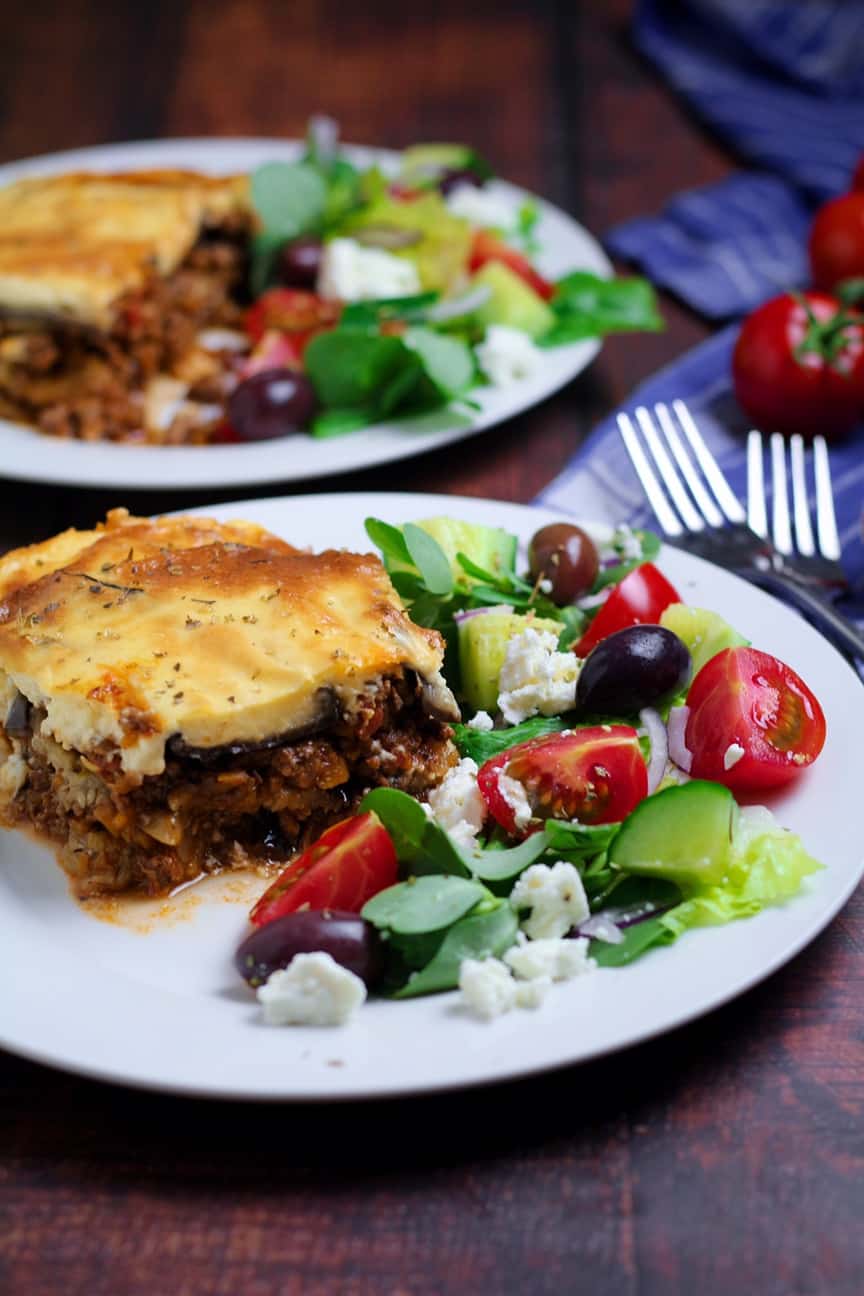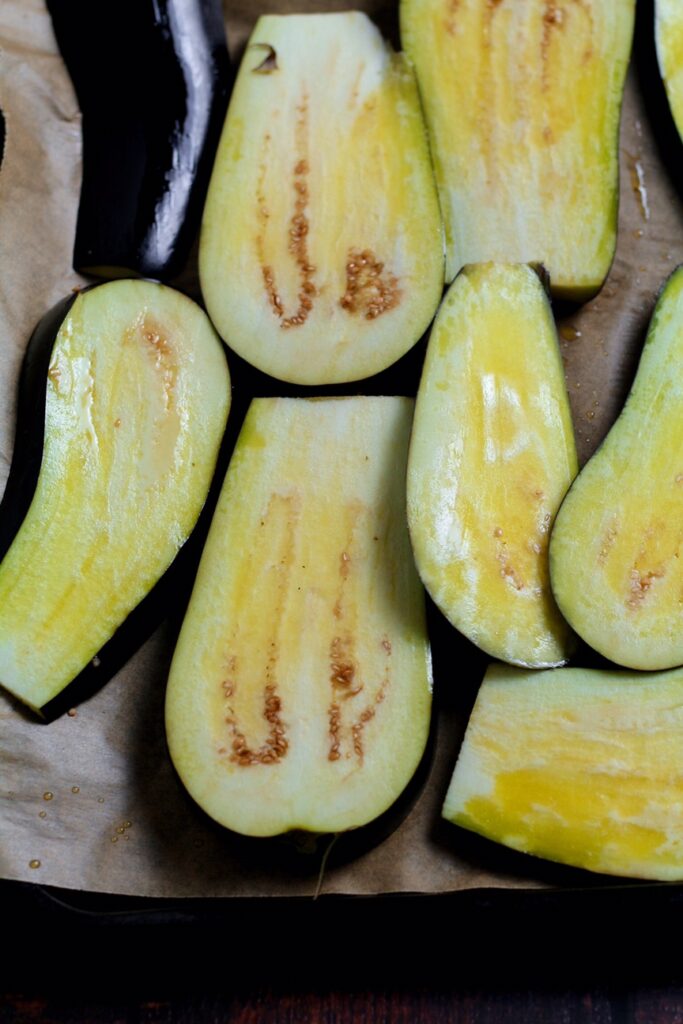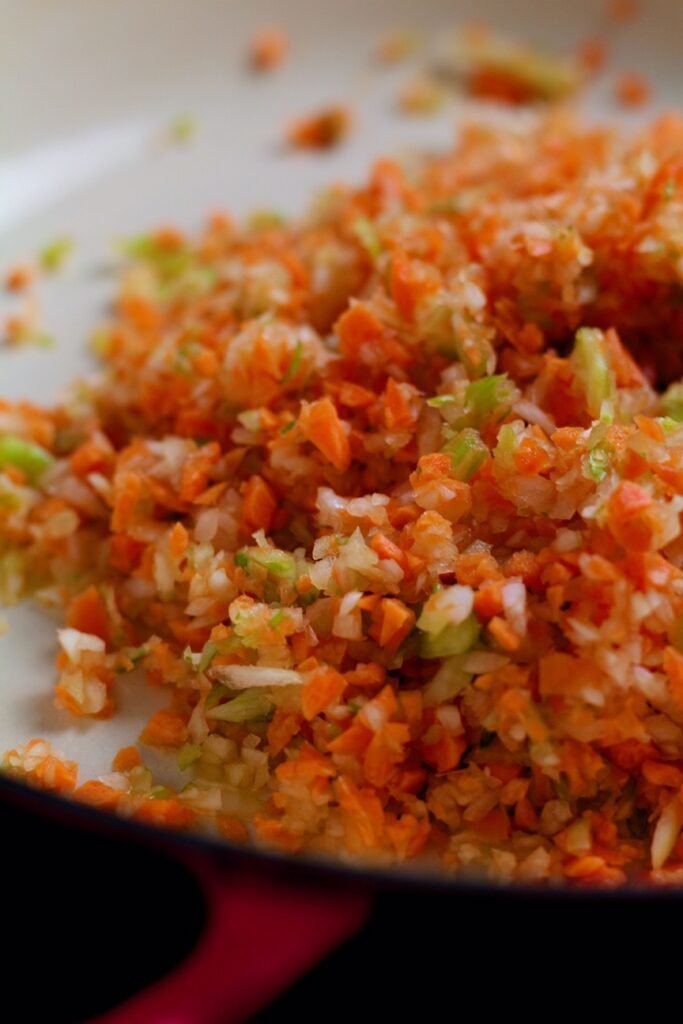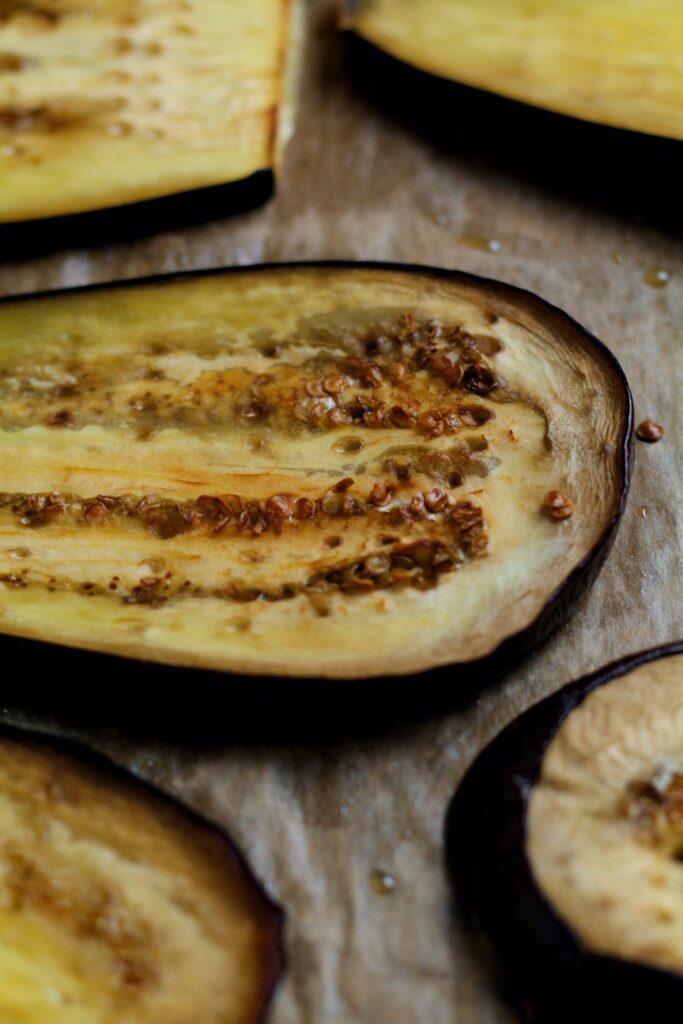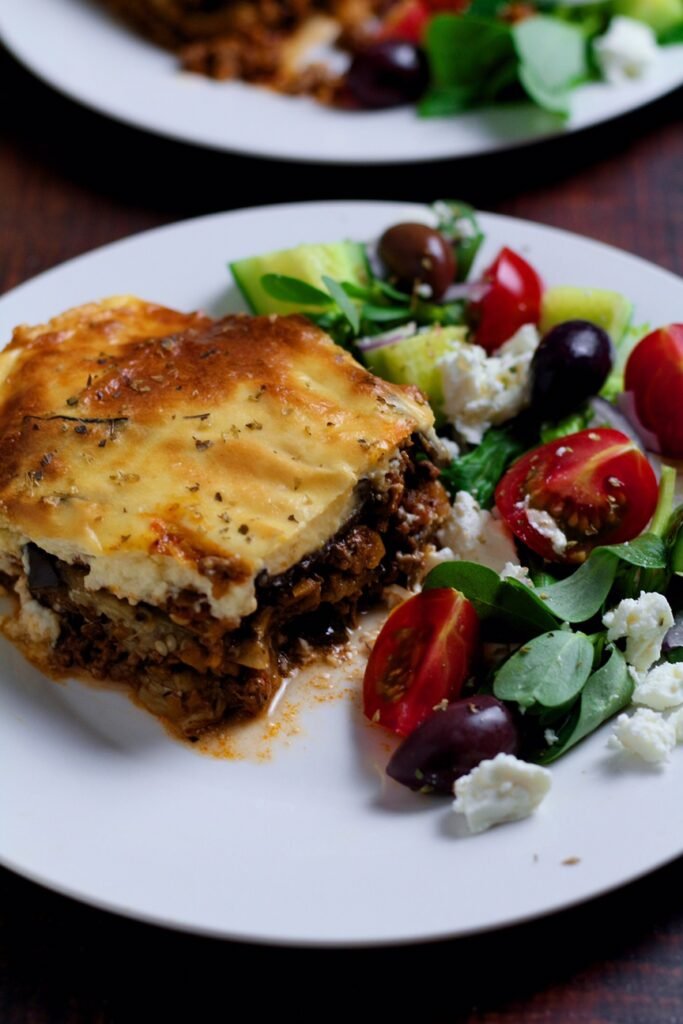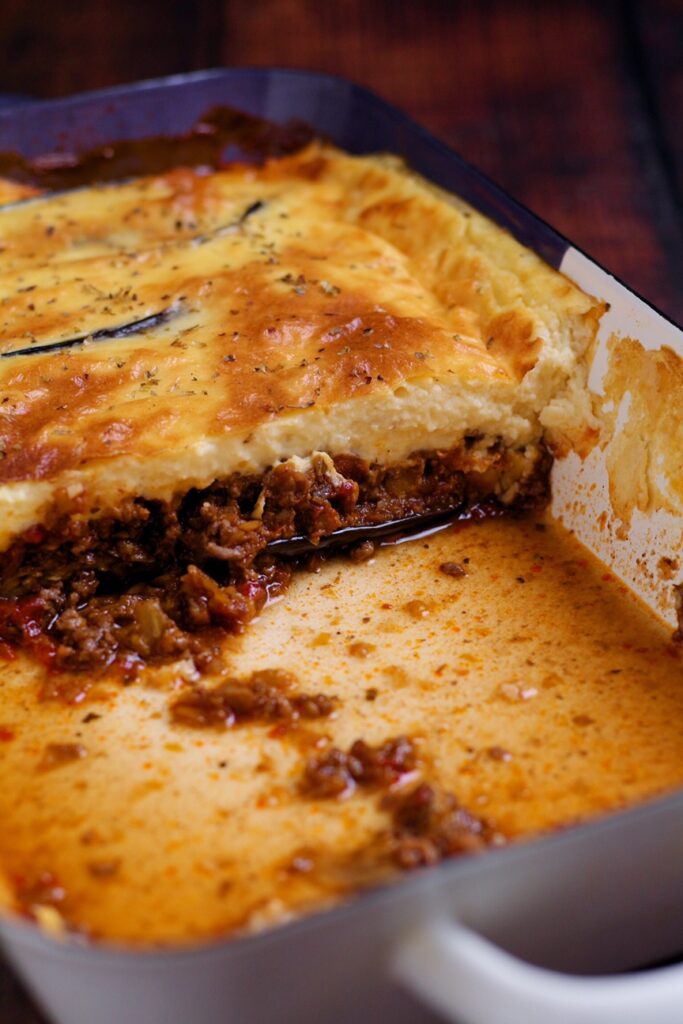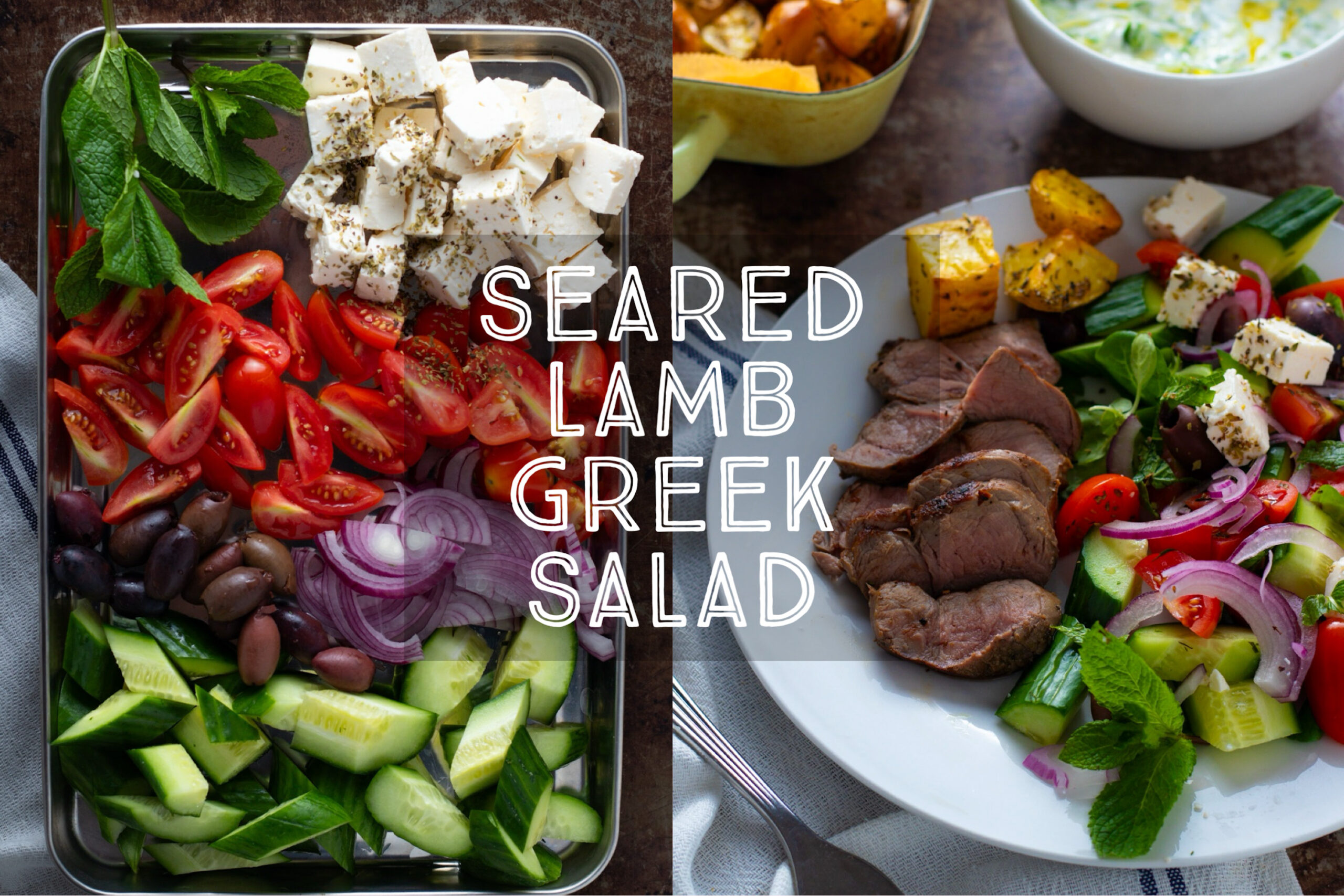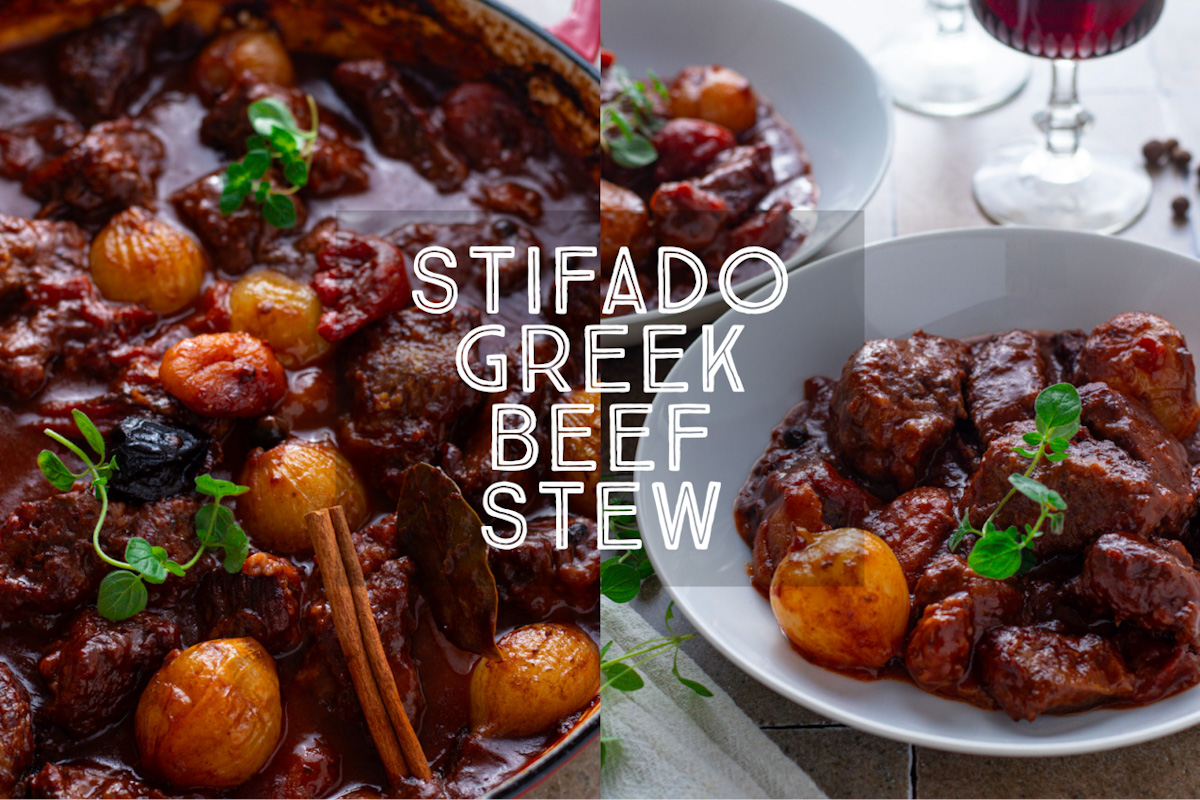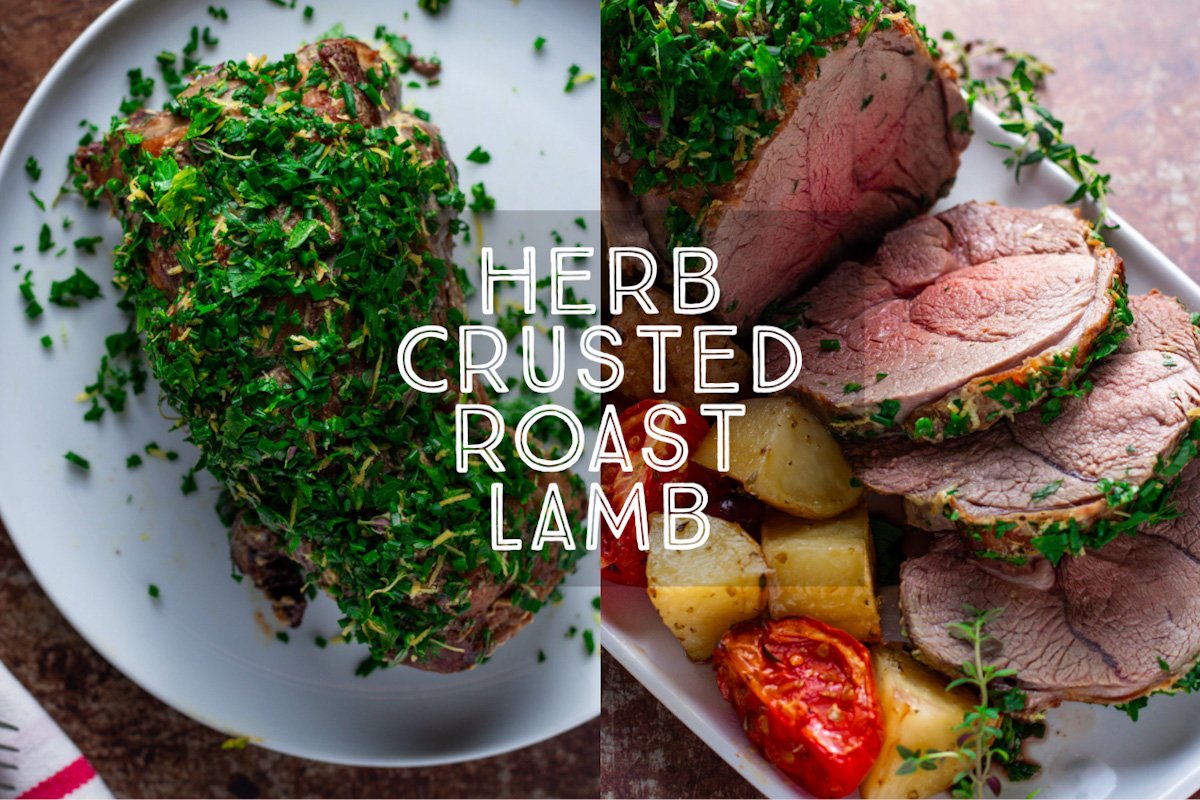
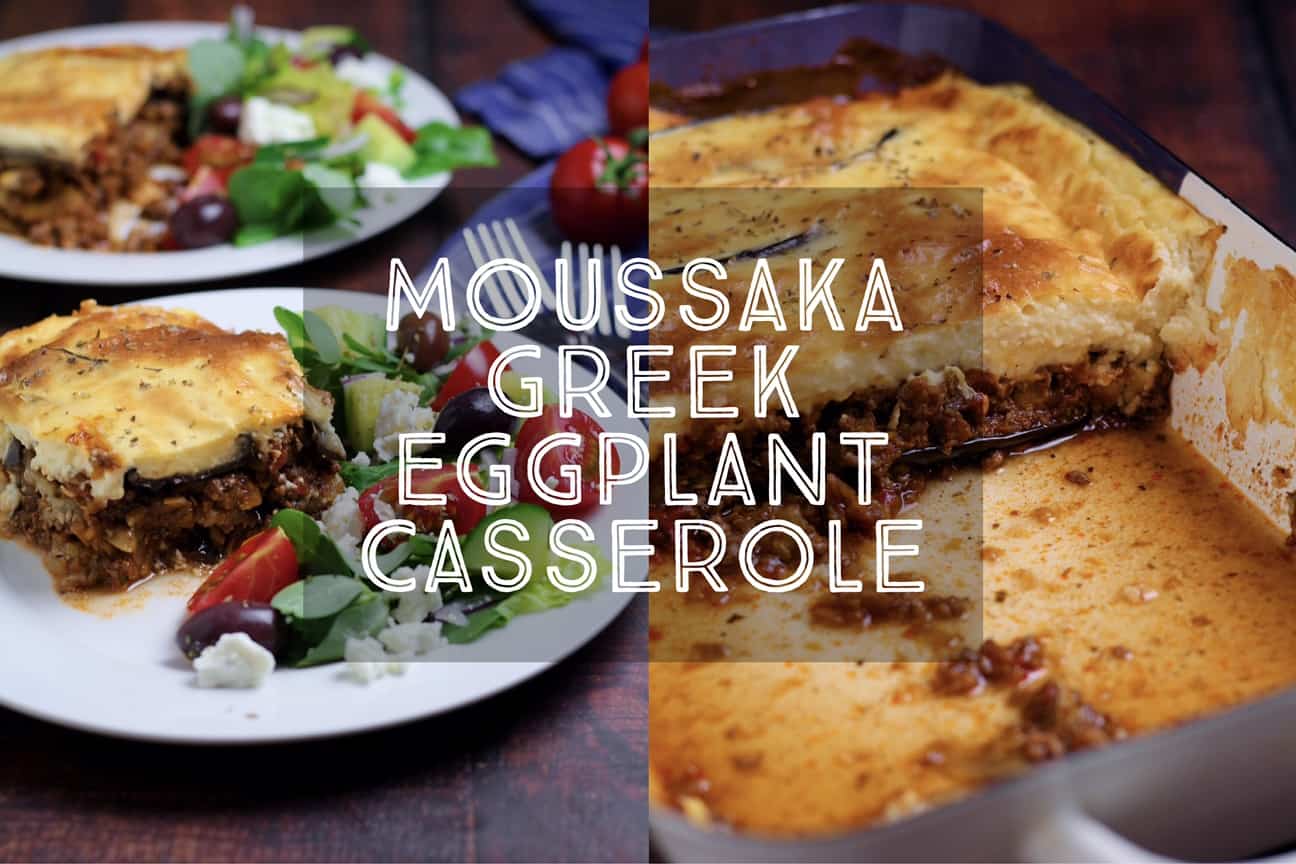
Moussaka Greek Eggplant Casserole
It’s still chilly out there today, so I’m cosied up in the kitchen cooking one of the most warming and comforting dishes that I know. That’s right, I’m talking that classic of the Greek kitchen: Moussaka. This is the sort of recipe to cook when you want to spend a bit of time in the kitchen and don’t mind using a few pots and pans. The recipe itself isn’t at all difficult, but there are four distinct stages to the process, so I would recommend saving this one for a weekend project when you’re not feeling rushed.
So, apart from delicious, what is moussaka? If you have never had it before you need to put this recipe on your to-do list immediately because it is so good. Layers of spiced, flavoursome lamb or beef mince, tender aubergine/eggplant, and a thick topping of pillowy soft béchamel sauce. Yum!
TABLE OF CONTENTS
▼
Now, some people complain about moussaka being too oily or greasy. The main culprit here is the aubergines or eggplants which hoover up any oil that they are cooked in like little sponges. The way to get around this is to brush them with oil and bake them in the oven while you are cooking the meat sauce. No oiliness, no frying pan full of hot fat, you save time and the eggplant/aubergine has the same deliciously creamy texture. Win-win.
I’ve had a lot of questions about the fact that I don’t salt the eggplant/aubergine in this recipe. The good news is that salting eggplant/aubergine to remove the bitterness is not necessary these days. Like many of our other fruit and vegetables, the bitterness has been bred out of eggplants, meaning that you can skip this step altogether. Hooray!
I like to serve my moussaka with a crisp Greek Village Salad to contrast with the deliciously soft texture of the moussaka. It goes without saying that this dish is perfect with a robust glass of red wine.
What’s your favourite Greek recipe? Let me know in the comments below!
Let me know if you try this recipe in the comments below, or using the hashtag #daysofjay on Instagram. Happy cooking!
Moussaka Greek Eggplant Casserole
Rich, warming and incredibly comforting, Greek Moussaka with lamb, eggplant and creamy béchamel is a fabulous recipe for when the weather turns cool. Baking the eggplant rather than frying means that the moussaka is perfect every time.
Ingredients
for the béchamel:
- 750 ml milk
- 1 onion, peeled and chopped
- 4 cloves
- 2 bay leaves
- pinch of ground nutmeg
- 75 g butter
- 75 g plain flour
- 50 g Pecorino cheese, finely grated (see note)
- 2 large eggs
for the moussaka:
- 3 large aubergine/eggplant
- 50 ml olive oil
- 1 large onion, finely diced
- 1 large carrot, finely diced
- 1 celery stick, finely diced
- 3 cloves garlic, peeled and diced
- 1 sprig of rosemary, leaves finely chopped
- 2 tsp dried oregano
- 1 tsp ground cinnamon
- ½ tsp ground allspice
- 500 g lamb mince, see note
- 2 Tbsp tomato paste
- 1 tsp sugar
- 400 g tin chopped tomatoes
- 200 ml beef stock
- 100 ml red wine
- sea salt and black pepper
Instructions
- Heat the oven to 180°C / 350°F / Gas 4, fan bake if possible. Line two trays with baking paper.
- In a large saucepan combine the milk, onion, cloves, bay leaves and nutmeg. Bring the mixture to a gentle simmer, then cover and remove from the heat. Set aside to infuse.
- Meanwhile, trim the tops off the aubergines and slice lengthways into 1cm thick slices. Brush each side with oil, place on the prepared baking trays in a single layer and prick the slices all over with a fork. Bake in the preheated oven for 30 minutes. When baked, remove from the oven and set aside to cool slightly.
- While the aubergines are cooking prepare the moussaka filling. Heat the remaining olive oil (add up to a tablespoon if necessary) to a large frying pan. Cook the onion, carrot and celery gently for 10 minutes until softened, but not browned. Stir through the garlic, rosemary, oregano, cinnamon and allspice and continue to cook for a further two minutes.
- Add the lamb mince to the pan, using a wooden spoon to break it up. Turn the heat to medium, and continue cooking until the mince is lightly browned. Use a spoon to remove any excess fat from the pan, if necessary. Stir through the tomato paste and continue to cook for 2-3 minutes.
- Add the sugar, tomatoes, beef stock and wine to the pan, season generously with salt and pepper, then bring the mixture to a simmer. Allow to simmer for 20-30 minutes until thickened. Remove from the heat, taste and season again if necessary.
- Strain the milk for the béchamel, discarding the onion and spices. Rinse and dry the saucepan, then place over medium heat. Melt the butter in the pan, and when it has melted, stir through the flour. Cook, stirring for 2-3 minutes, then gradually whisk in the milk. Bring to a simmer and cook, stirring often for 3-5 minutes, or until the mixture has thickened.
- Remove from the heat and stir through the Pecorino cheese, then allow to cool for 5 minutes. Whisk in the eggs until combined.
- Assemble the moussaka by spooning ⅓ of the filling mixture into the base of an oven-proof dish. Top with a layer of aubergine, then continue layering, ending with a layer of aubergine. Pour over the béchamel and smooth the top. Place the moussaka onto an oven tray and bake in the preheated oven for 30 minutes until golden brown and the béchamel sauce has puffed. Turn the dish halfway if it is browning unevenly.
- Set aside and allow to cool for at least 15 minutes before slicing and serving. Serve with a fresh and crisp Greek Salad.
Notes
Pecorino is closest to the traditional Greek cheese ‘Kefalotyri’ used in moussaka. If you can’t get Pecorino, use Parmesan cheese instead.
Lamb mince can be substituted with beef or turkey mince.
As an Amazon Associate and member of other affiliate programs, I earn from qualifying purchases.
Nutrition
Calories: 1261kcal | Carbohydrates: 100g | Protein: 63g | Fat: 70g | Saturated Fat: 30g | Polyunsaturated Fat: 34g | Trans Fat: 1g | Cholesterol: 308mg | Sodium: 768mg | Fiber: 21g | Sugar: 30g
Tried this recipe?I’d love to hear how it went! Please leave a review or a star rating and let me know how it was! Use the hashtag #daysofjay on Instagram so I can see your delicious creations.
FREQUENTLY ASKED QUESTIONS
Can I make moussaka in advance?
Yes, you can! In fact, this is an ideal dish to make in advance and reheat. All the flavours have time to mingle and you can impress everybody with the perfect moussaka you have whipped up.
u003cbru003eCan I freeze moussaka?
Yes! Let it cool completely, then cut into individual portions before freezing. Defrost overnight in the fridge then reheat in a low oven.
u003cbru003eDo I need to salt the eggplant/aubergine?
The good news is that salting eggplant/aubergine to remove the bitterness is not necessary these days. Like many of our other fruit and vegetables, the bitterness has been bred out of eggplants, meaning that you can skip this step altogether. Hooray!
u003cbru003eCan I make moussaka in individual portions?
Absolutely! If you have small ovenproof dishes moussaka will work perfectly. Remember to place the dishes on an oven tray to stop any overflow.
If you have never had moussaka before you need to put this recipe on your to-do list immediately because it is so good. Layers of spiced, flavoursome lamb or beef mince, tender aubergine/eggplant, and a thick topping of pillowy soft béchamel sauce. Yum!
MOUSSAKA GREEK EGGPLANT CASSEROLE
f

About the Author
Jay Wadams is a cookbook author, food photographer, and graduate of Le Cordon Bleu in Gastronomy and Nutrition.
Based in Italy 🇮🇹 Germany 🇩🇪 and Australia 🇦🇺.


